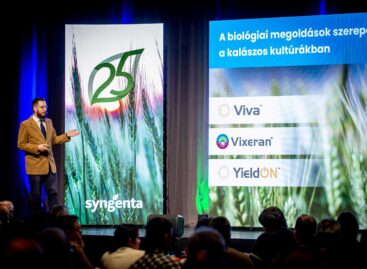Syngenta invests 2 billion dollars in sustainable farming
• Syngenta dedicates $2 billion over five years to innovation specifically targeted at delivering a step change in agricultural sustainability
• CEO Erik Fyrwald commits Syngenta to drive two technological breakthroughs to market each year at Sustainability Summit in New York
• Syngenta will reduce the carbon intensity of the company’s operations by 50 percent by 2030, to support the goals of the Paris Agreement on climate change
Syngenta’s commitment has been validated and endorsed by the Science Based Targets initiative (SBTi). CEO Erik Fyrwald said: ‘Agriculture is now at the frontline of global efforts to tackle climate change. Syngenta is committed to accelerating our innovation to find better and ever safer solutions to address the shared challenge of climate change and biodiversity loss.’
The USD 2 billion will be invested in programmes with clearly differentiated benefits or breakthrough technologies that will enable a step change in agricultural sustainability, such as land use, soil health and integrated pest management.
Through a multi-year collaboration with The Nature Conservancy, Syngenta is developing strategies to identify and test new innovations and technology that can benefit farmers and contribute to positive environmental outcomes. The collaboration is grounded in efforts to promote soil health, resource efficiency and habitat protection in major agricultural regions worldwide.
Sally Jewell, CEO at The Nature Conservancy said: ‘Syngenta’s investment in innovation is an important step toward a future where people and nature thrive.’ The targets form part of Syngenta’s Accelerating Innovation commitment launched earlier this year to address the increased challenges faced by farmers because of climate change, soil erosion, and biodiversity loss. (x)
Related news
István Nagy: You can join the agricultural crisis insurance system soon
🎧 Hallgasd a cikket: Lejátszás Szünet Folytatás Leállítás Nyelv: Auto…
Read more >Related news
Tesco sets out store expansion plans in 2026 including five former Amazon Fresh sites
🎧 Hallgasd a cikket: Lejátszás Szünet Folytatás Leállítás Nyelv: Auto…
Read more >Brits Embrace At‑Home Celebrations While Germans Cut Back on Valentine’s Day Spending
🎧 Hallgasd a cikket: Lejátszás Szünet Folytatás Leállítás Nyelv: Auto…
Read more >








